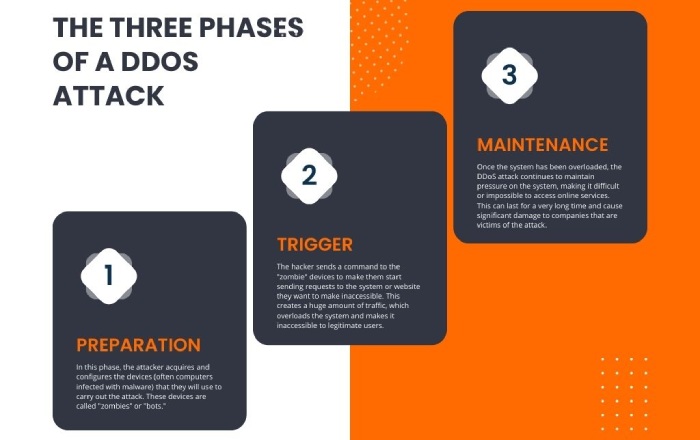[sonaar_audioplayer albums=”243016, 243069, 243091, 243115, 243151, 243173, 243195, 243238, 243291, 243308, 243324, 243335, 243401, 243466, 243537, 243595, 243646, 243710, 243795, 243842, 243885, 243940, 244001, 244026, 244108, 244140, 244161″ progress_bar_style=”default” wave_bar_width=”1″ wave_bar_gap=”1″ player_layout=”skin_boxed_tracklist” show_track_market=”true”][/sonaar_audioplayer]
Africa’s rapid digitization attempts have made it a prime target among threat actors. Jumping onto the digitization bandwagon just to stay relevant without having the proper knowledge, resources, and infrastructure is affecting Africa badly.
There has been a steep rise in the number of DDoS ( Distributed Denial of Service) attacks, especially in organizations spread across North Africa. The point of concern is that North Africa is experiencing the highest internet proliferation at present.
A DDoS attack is one where the attacker tends to overwhelm a website or any kind of online service with enormous traffic, thereby making it inaccessible to actual users. DDoS attacks lead to financial losses, downtime, and tarnished reputations.
DDoS attacks have been increasing in frequency and intensity across Africa and Middle Eastern nations. As per a recent report, a steep increase of 30% in DDoS attacks was witnessed on the first of 2024. Morocco, a country in North Africa with greater internet usage, has reported a whopping 61,000 DDoS attack incidents.
Similarly, Egypt, another North African country, has been the victim of DDoS attacks, with 45,108 reported incidents, which also occurred within the first half of 2024. Tunisia is also not far behind, with around 4500+ DDoS incidents. The one common factor among all these North African countries is higher internet penetration levels without proper infrastructure and safety measures.
Experts believe that digital transformation can both be a boon and a bane. While digitization means growth and development, it also means an increase in demand for state-of-the-art safety mechanisms, trained professionals, extravagant systems, and procedures.
According to a report by the Africa Center for Strategic Studies, the penetration of communication systems, IT departments and other technologies has contributed to making Africa a vulnerable target of DDoS attackers.
Experts believe that Africa will soon face a wider range of cyber threats beyond DDoS attacks. These include attacks on the utility sector, cyber espionage, organized cybercrimes, business email threats, and romance scams. Additionally, phishing attacks are expected to rise, emphasizing the need for robust phishing protection strategies to safeguard sensitive data and systems.
How can African organizations safeguard themselves against increasing cyber threats?
Businesses, companies, and individuals across Africa must pull up their socks to tackle the current cyber invasion. Here’s what everyone can do to steer clear of the risks of cyberattacks:
1. Come up with a response plan
In case the DDoS or any other form of cyberattack takes place, make sure that you have a response plan ready to minimize the impact of the attack. The response plan should aim at lessening the damage and enhancing the recovery process.
2. Offer regular training to employees
Cyber awareness is another crucial tactic to combat the threat actors. Organize regular training sessions to enable your team members to recognize signs of potential attacks.
3. Fortify against threat actors
Investing in tools and systems that enable you to track network traffic and identify any kind of unusual spikes can be a great move.
Growth is impossible without digitization. However, growth can be hindered if proper action is not taken to combat threat attacks.



